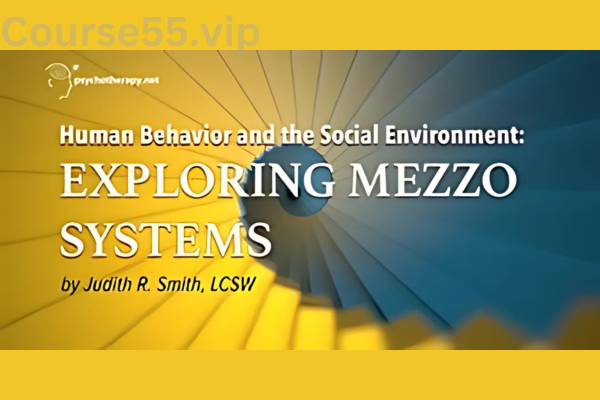-
×
 Self-Regulation & Executive Functioning in Children and Adolescents: Visual Strategies and Hands-on Techniques to Provide Structure, Predictability, and Routines By Kathy Morris
1 × $23.10
Self-Regulation & Executive Functioning in Children and Adolescents: Visual Strategies and Hands-on Techniques to Provide Structure, Predictability, and Routines By Kathy Morris
1 × $23.10 -
×
 New Rules for Treating Trauma: Integrating Neuroscience for Resilience, Connection and Post-Traumatic Growth By Courtney Armstrong - PESI
1 × $23.10
New Rules for Treating Trauma: Integrating Neuroscience for Resilience, Connection and Post-Traumatic Growth By Courtney Armstrong - PESI
1 × $23.10
Exploring Mezzo Systems With Judith R. Smith
$39.00 Original price was: $39.00.$7.70Current price is: $7.70.
SKU: C55vip.46363AYOR3h8Z
Category: Download
Tags: Exploring Mezzo Systems, Mezzo Systems, With Judith R. Smith
Exploring mezzo systems: A review of Judith R. Smith’s insights – Digital Download!

Exploring Mezzo Systems With Judith R. Smith
Overview

Understanding the Significance of Mezzo Systems: A Detailed Review of Judith R. Smith’s Perspective
In a world where navigating complex social networks is increasingly difficult, Judith R. Smith’s video, Exploring Mezzo Systems, offers valuable insights into social work education and practice. By leveraging social systems theory, Smith illustrates how mezzo systems—the interconnected networks that exist between individuals and their communities—are crucial for understanding social behaviors and interpersonal relationships. This resource goes beyond theory, providing an essential tool for recognizing the impact of societal structures on individuals’ lives. Through vivid stories set in a New York City neighborhood, Smith invites the viewer to reflect on the way communities shape individuals’ lives and experiences. This review delves into Smith’s perspective, emphasizing the importance of mezzo systems in both social work education and practice.
Comprehending Mezzo Systems and Their Relevance in Social Work
Judith R. Smith defines mezzo systems as the link between the individual (micro) and the larger societal systems (macro) in the context of social work. These systems include the dynamics within smaller groups, organizations, and communities that significantly affect individuals’ lives and their relationship with society. Smith stresses the notion that individuals are never isolated; they exist in environments that either aid or hinder their potential.
Rather than remaining purely theoretical, Smith uses practical examples to demonstrate how mezzo systems operate. For instance, an immigrant family’s struggle to integrate into a community highlights the barriers posed by societal structures, yet also showcases the individuals’ perseverance in overcoming these challenges. These personal experiences form a collective narrative that illustrates how social networks influence people’s ability to thrive.
Smith’s model emphasizes several core concepts vital for understanding mezzo systems:
-
Community Involvement: Encouraging active participation in community-building to support individuals’ well-being.
-
Identity Intersections: Recognizing how overlapping aspects of identity shape experiences within mezzo systems.
-
Shared Responsibility: Highlighting that social well-being is not solely the result of individual actions, but rather a product of collective community efforts and systemic transformation.
By focusing on these concepts, Smith reinforces the role of social workers as change agents who not only support individuals but advocate for systemic reform.
The Impact of Real-life Examples: How Stories Illuminate Mezzo Systems
A standout feature of Smith’s video is the integration of real-life examples that vividly illustrate the complexities of mezzo systems in action. These narratives provide an accessible way to understand how various factors shape individuals’ experiences within their communities.
One example is the story of an immigrant woman who initially feels isolated but eventually finds a supportive community group that helps her assimilate and gain confidence. This narrative exemplifies how mezzo systems foster connection and empowerment in the face of adversity.
Another compelling story focuses on an elderly person dealing with the negative impacts of ageism and social isolation. This example underscores the ways in which societal prejudices restrict participation in community life. By exploring how mezzo systems can either reinforce or challenge these limiting narratives, Smith emphasizes the importance of community support in counteracting stereotypes.
These personal accounts engage viewers emotionally, offering a deep connection to the material and helping to reinforce the theory behind mezzo systems with practical examples from the real world.
Practical Applications of Mezzo Systems in Social Work
Smith’s presentation offers critical insights for social work practice, particularly in the ways social workers can engage with clients and communities. Her framework provides practical strategies that can be used to enhance service delivery and community-based interventions.
-
Client-Centered Approach: Understanding the dynamics of mezzo systems allows social workers to better tailor their interventions, addressing the specific needs and challenges of the communities they serve. This could involve assisting clients in accessing resources, overcoming bureaucratic obstacles, or fostering social connections.
-
Advocacy and Social Change: Smith emphasizes the role of social workers in advocating for systemic reforms that benefit communities. This could include addressing social inequalities or advocating for policy changes to improve access to resources.
-
Holistic Interventions: The interaction between individuals and their environments suggests that social workers should adopt a comprehensive approach that integrates both direct services and broader community engagement. This combined strategy enhances the effectiveness of social interventions.
-
Narrative Engagement: Smith’s use of real-life stories emphasizes the value of storytelling in social work practice. By understanding the stories of clients, social workers can build stronger connections, gain insights into their needs, and foster a deeper sense of empathy.
The Educational Value of Mezzo Systems: Enhancing Social Work Training
Smith’s presentation is a valuable teaching resource in social work programs, particularly within the Human Behavior and the Social Environment (HBSE) curriculum. The content provides a practical framework that helps students understand the theoretical concepts behind mezzo systems, facilitating deeper classroom discussions.
Through real-world stories, Smith encourages students to critically engage with essential questions such as:
-
In what ways do community characteristics influence individual experiences?
-
How can social workers promote positive change within communities?
-
How does understanding mezzo systems guide ethical decision-making and practice?
The use of personal stories as case studies enriches these discussions and allows students to connect theoretical learning with practical, real-world applications.
Supplementary Resources for Educators and Students
To deepen students’ understanding of mezzo systems, instructors can supplement Smith’s video with additional resources:
-
Further Readings: Texts like Social Work Practice with Groups by Charles D. Garvin expand on key social work principles and offer additional perspectives on mezzo systems.
-
Guest Lectures: Inviting social work professionals or community leaders to share their insights can help students see the real-world applications of mezzo system theory.
-
Community Engagement: Encouraging students to participate in community-based projects or internships enables them to apply their knowledge of mezzo systems in practical settings, enhancing their skills and understanding.
By integrating these resources, educators can better prepare students to address the complexities of mezzo systems and become effective social workers who advocate for social change.
Final Thoughts: The Lasting Importance of Mezzo Systems in Social Work Practice
Judith R. Smith’s Exploring Mezzo Systems is an insightful resource for both social work education and professional practice. By emphasizing the role of mezzo systems in shaping individual and collective experiences, Smith offers a clear framework for understanding how these systems operate and affect social work practice. The use of real-life stories provides a dynamic and engaging approach to learning, making abstract concepts more tangible and relatable.
In an ever-changing world, where social cohesion faces numerous challenges, understanding mezzo systems is essential for social workers who aim to make a meaningful impact. Smith’s work encourages transformative action, inspiring social workers to advocate for their clients, challenge systemic injustices, and support community resilience. Her approach serves as a valuable guide for anyone dedicated to advancing social equity and creating lasting change in the communities they serve.
Frequently Asked Questions:
Business Model Innovation: We operate a group buying strategy, allowing participants to share costs and access popular courses at reduced prices. This model benefits individuals with limited financial resources, despite concerns from content creators about distribution methods.
Legal Considerations: The legality of our operations involves complex issues. Although we don’t have explicit permission from course creators to resell their content, there are no specific resale restrictions stated at the time of purchase. This ambiguity creates an opportunity for us to provide affordable educational resources.
Quality Control: We ensure that all course materials purchased are identical to those offered directly by the creators. However, it’s important to understand that we are not official providers. As such, our offerings do not include:
– Live coaching calls or sessions with the course author.
– Access to exclusive author-controlled groups or portals.
– Membership in private forums.
– Direct email support from the author or their team.
We aim to reduce the cost barrier in education by offering these courses independently, without the premium services available through official channels. We appreciate your understanding of our unique approach.
Be the first to review “Exploring Mezzo Systems With Judith R. Smith” Cancel reply
You must be logged in to post a review.
















Reviews
There are no reviews yet.